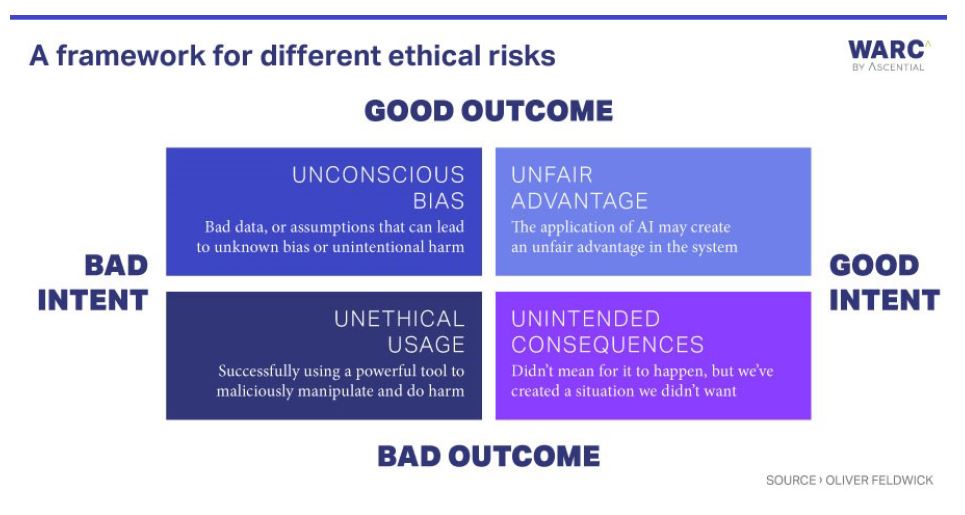The May issue of Admap puts the focus on data ethics, which the Open Data Institute defines as “a branch of ethics that evaluates data practices with the potential to adversely impact on people and society – in data collection, sharing and use”.
In Do androids dream of electric consumers?, Oliver Feldwick, global head of innovation at The&Partnership, observes that science fiction, from 2001 to Blade Runner, is full of thought experiment dilemmas that are moving into the real world as technological development throws up new issues where ethical considerations become hugely important.
A self-driving car needs to decide between steering left to avoid a person but potentially hit others. Who should it choose? What data should it infer from?
Marketers don’t face such life or death scenarios, but they still need to think about how AI influences much of what they do, he argues, from the ads programmatic systems choose to show to “Next Best Action” recommendations.
“These little nudges and moments quickly add up to shape and influence the world around us in multiple ways,” he points out. Further, the algorithms of the tech giants can affect our views of the world by what they choose to expose users to.
As well as looking at the ‘agency/author’ of such decisions, a consideration of marketing ethics needs to examine the ‘intent’ that goes into them, and the ‘outcomes’ they create.
“Looking at intent and outcome gives us a framework for different ethical risks and how we should guard against them,” Feldwick advises. “If we map these into four quadrants, we get to some of the common concerns or challenges we could face.”

Having unpacked the problems around AI, data and marketing ethics there remain plenty of potential pitfalls, although Feldwick has several recommendations to help minimise risk, including having humans and machines working together and ensuring diversity of data, of teams and of thought.
“[By] building in the right safeguards, diversity and frameworks into everything we do, we can shape the landscape for the better,” Feldwick says.
This issue of Admap features a selection of articles by thought leaders from across the globe, including Bob Hoffman and Ann Cavoukian. WARC subscribers can access the deck – Data ethics – which summarises the expert advice from contributors and key considerations on this important topic.
Sourced from Admap
